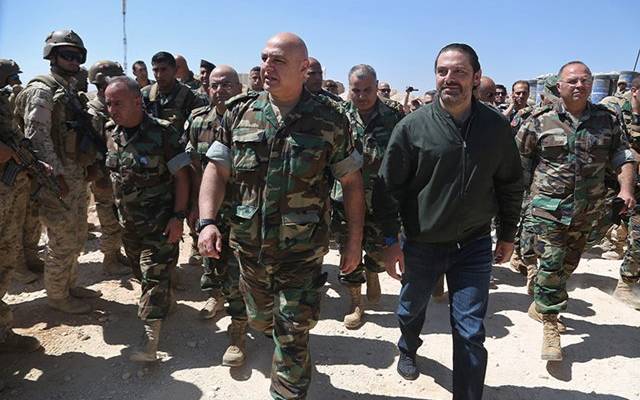Lebanese General Joseph Aoun is calling on Lebanon’s ineffective army to be ready to challenge Israel. Can he be taken seriously?
The commander of the Lebanese Armed Forces, General Joseph Aoun, called on his soldiers “to be fully prepared on the southern border to confront the Israeli enemy’s threats and violations,” The Times of Israel reported Tuesday.
The general warned that Israel has “hostile intentions against Lebanon, its people, and army” and urged his troops to be ever vigilant for the “good implementation” of UN Security Council Resolution 1701 to “preserve stability” along the border with Israel.
Israeli officials have had no immediate comment.
The Lebanese army is responsible for security on the Lebanese side of the border under United Nations Security Council (UNSC) resolution 1701 that ended the 2006 war between Israel and the Lebanon-based terrorist organization Hezbollah. In recent years Hezbollah has amassed a huge arsenal including sophisticated missiles in violation of that resolution which required the terrorist group to disarm.
Non-Existing State of Lebanon
Anoun’s forces, however, are largely seen as ineffective, incapable of confronting the better armed and battle-hardened Hezbollah, which is in total political and military control of Lebanon. The Lebanese army has made no attempts to disarm Hezbollah and the terrorist organization exercises control over the government.
The past summer a reporter for The Washington Post noted that there was no “evidence of the Lebanese state” in a border area with Syria that was held by Hezbollah.
The general’s remarks came a day after Lebanese President Michel Aoun defended Hezbollah as an integral part of the resistance movement against Israel, after a statement by the Arab League attacked Anoun’s government for being in a coalition with Hezbollah, which they accused of spreading terror across the Middle East region.
“Lebanon was able to face the Israeli aggression since 1978 until the 2006 war. It was able to liberate its land. Israeli threats are still ongoing; the Lebanese have the right to fight and thwart it with all available means,” Aoun said. He continued, “Israeli targeting still continues and it is the right of the Lebanese to resist it and foil its plans by all available means.”
In September a member of Hezbollah boasted to NBC news that without its support “the [Lebanese] army is nothing.” Similarly, a few weeks later Israeli Defense Minister Avigdor Liberman observed, “The Lebanese army has turned into an integral part of Hezbollah’s command structure. The Lebanese army has lost its independence and become an inseparable part of the Hezbollah apparatus.”
The shock resignation of Lebanese Prime Minister Saad al-Hariri earlier this month plunged Lebanon into a domestic crisis and came at a time of rising tensions between Israel and Hezbollah as well as a political crisis between Beirut and Saudi Arabia. Hariri cited the meddling of Iran and its terror proxy Hezbollah as the reason for his resignation.
Meanwhile, Israeli Defense Minister Avigdor Liberman, on Monday urged lawmakers to boost military spending by over $1 billion over the next three years, to meet Hezbollah’s build up on the southern border as well as Iran’s expansionist campaign across the region.
By: The Tower










